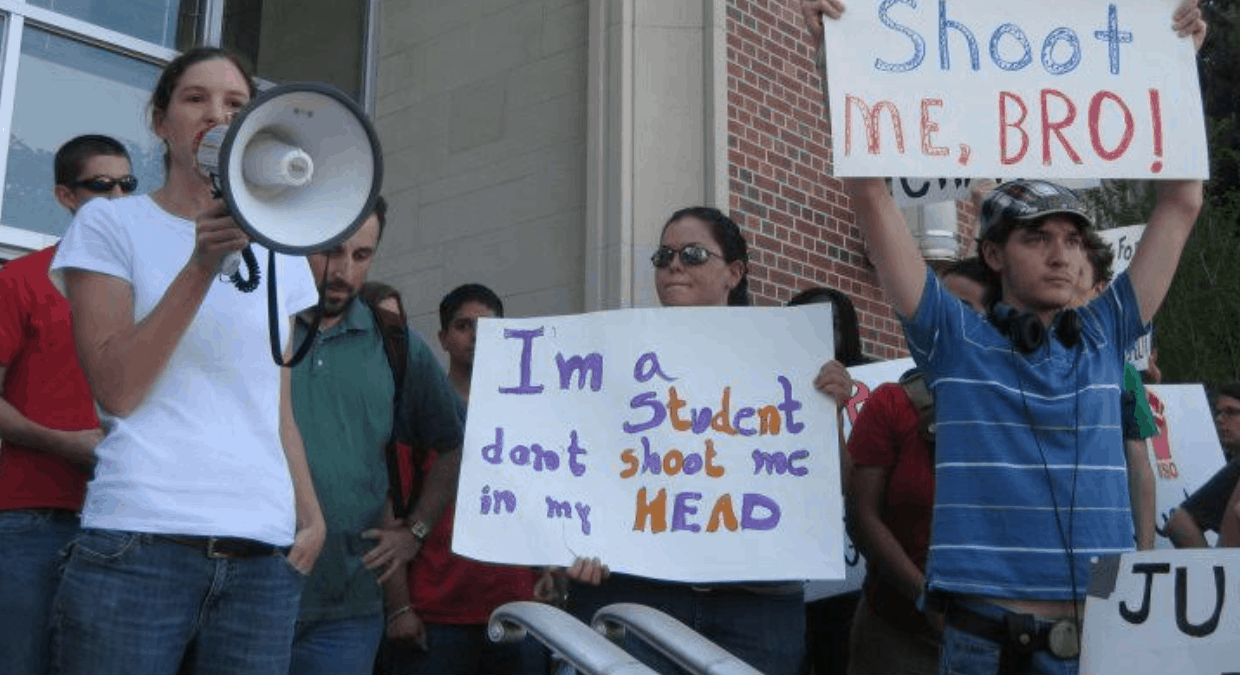While many know Dr. Regina Martin as the instructor of classes in Barney Davis that range from 20th Century Fiction to Literary Theory, they may not know just how involved she is in activism and community engagement outside of the classroom.
Martin’s research looks at the intersection between economic history and literary history. She incorporates this in her 300-level classes and global commerce class.
“In many ways I feel like I’ve won the academic lottery at Denison. There’s a lot of support for faculty development here, both as researchers and as teachers.”
In 1995, Martin received a full-ride to DePauw University as a business major. After realizing business was not her passion, she transferred to the University of Oklahoma (her home-state) and got her Bachelor’s in English.
“I’ve always had a strong interest in how wealth accumulates and what the mechanisms through which wealth accumulations. The economy is a huge part of organizing social relationships and literature is all about social relationships. So it made sense to look at the relationship between the two,” said Martin as she reflected on her decision.
While at Oklahoma, Martin began to get more involved in political activism. As a member of the Green Party she worked to campaign for curbside recycling, opposed right-to-work legislation, and petitioned to get Ralph Nader put on the ballot in 2000.
Before getting her Master’s, Martin taught English as a second language at the University of Oklahoma before going to the University of Florida to get her PhD. While in Florida, Martin became very involved in the union of graduate assistants. She served on the executive committee and eventually became the president her last year.
Martin cites this as the most important experience in graduate school. It was here that she learned about the politics of higher education and gained a deep understanding of the infrastructure of higher education.
Inspired by her time in grad school, Martin became involved in anti-police brutality activism (now Black Lives Matter) and was a leader in the effort to gain more community accountability.
After getting her PhD, Martin moved to Atlanta where she worked before coming to Denison. In Atlanta, Martin became heavily involved in the Occupy Movement. It was the first time organizing on a large scale and with such abstract ideas, whereas her union work previously dealt with topics that were more concrete.
For Martin, it was important to raise awareness and reshape the economic system around the average person and not the wealthy. It achieved a really important objective of reshaping the national discourse by reshaping how we talk. The Occupy Movement moved the conversation away from national debt and focused it more on wealth-inequality.
Besides canvassing for Obama in 2008, Martin tried to engage less in electoral politics and more in activism that would have a better chance of impacting the average person’s life. After the 2016 election, Martin has become more engaged with her local community.
Her classes have an immense effect on students as well as her activism. Taylor Kerns, English major ‘20, “Dr. Martin has encouraged me when I didn’t feel like I could be the best student and is extremely articulate. She never shies away from criticizing institutions and systems of thought. For all these reasons (and more), I deliberately looked to take more of her classes when choosing my current schedule.”
Since moving to Ohio, Martin worked with Books-for-Prisoners and did workshops on the prison industrial complex and specifically on advocating for the abolishment of prisons. She encourages students (or anyone) get involved in their community saying, “communities cannot function if its members are not engaged.”
Martin has just been given tenure at Denison and is currently writing her book Finance Capital in British Modernism 1870-1940 based on work that she started in graduate school.

